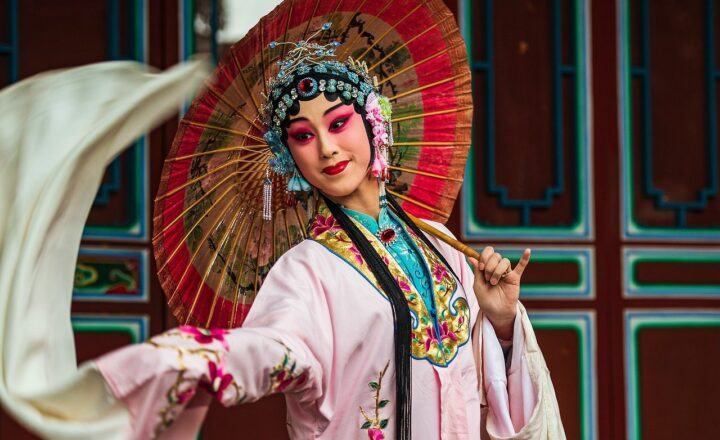From ‘American Idol’ to ‘The Voice’: The Reality Singing Competitions That Took Over TV
November 12, 2024

Reality singing competitions have transformed the television landscape, providing both aspiring artists and viewers with unforgettable moments, emotional performances, and career-defining opportunities. From the launch of ‘American Idol’ in 2002 to the groundbreaking format of ‘The Voice’, these shows have not only entertained millions but have also changed the music industry dynamics. Let’s delve deep into the phenomenon of reality singing competitions, exploring their evolution, impact, and the cultural moments that defined them.
1. The Birth of Reality Singing Competitions
The era of reality television began in the late 1990s and early 2000s, but it was the 2002 premiere of ‘American Idol’ that truly ignited the passion for singing competitions. This talent show, created by Simon Fuller, not only showcased singing talents from across America but also introduced audiences to the rigorous voting process where fans had the power to decide who would move forward.
The unique premise of ‘American Idol’ combined talent searches with pop culture, placing contestants against each other in front of a panel of judges, including the infamous Simon Cowell. This format captured the public’s imagination and resulted in a record-breaking viewership, setting the stage for similar shows to follow. One key aspect that made ‘American Idol’ popular was its emotional resonance, as viewers connected with the contestants’ journeys, triumphs, and failures.
2. The Success of ‘American Idol’
‘American Idol’ not only dominated the ratings but also shaped the careers of countless artists, including Kelly Clarkson, Carrie Underwood, and Jennifer Hudson. The competition introduced a new generation of singers to mainstream audiences and provided a launchpad for budding artists to enter the music industry.
To understand its success, we need to explore some fundamental elements of the show:
- Diverse Talent Pool: Contestants came from all walks of life, offering not only diversity but a variety of musical genres, which appealed to a broad audience.
- Engaging Format: Weekly eliminations kept viewers on the edge of their seats, fostering a sense of investment in the contestants’ journeys.
- Star Judges: The presence of industry veterans such as Paula Abdul and Randy Jackson, alongside Simon Cowell, created a perfect blend of mentorship and critique that audiences enjoyed watching.
Ultimately, ‘American Idol’ became a cultural phenomenon, generating numerous spin-offs and imitations in the years that followed.
3. The Rise of ‘The Voice’
Following the success of ‘American Idol’, new singing competitions began emerging, each attempting to capture the magic of what had come before. ‘The Voice’, which premiered in 2011, redefined the genre through its innovative format featuring blind auditions, battle rounds, and a focus on coaching rather than judging.
The format of ‘The Voice’ provided a fresh take on the singing competition by allowing contestants to be chosen based solely on their vocal talent without any visual biases at the beginning. Here are some notable aspects of the show:
- Mentor-Driven Approach: The show features famous musicians as coaches who mentor the contestants, giving them a chance to blossom under professional guidance.
- Diversity of Genres: Contestants sing a wide range of musical styles, resulting in a more diverse array of performances each week.
- Audience Engagement: Viewers at home have the opportunity to vote for their favorite contestants, actively participating in the competition and shaping its outcomes.
With its novel setup and established artists as mentors, ‘The Voice’ quickly rose to prominence, attracting high viewership and producing various successful contestants like Adam Levine, Kelly Clarkson, and John Legend as coaches.
4. Cultural Impact and Critiques
The impact of reality singing competitions extends beyond the music industry. These shows have influenced pop culture, contributed to the rise of social media engagement through voting, and created viral moments that resonate with audiences globally. Contestants’ personal stories and powerful performances often evoke emotions, making them relatable to everyday viewers.
However, reality singing competitions have not been without criticism. Some common critiques include:
- Commercialization of Art: Critics argue that these shows prioritize entertainment value over artistic expression, creating a cookie-cutter mold for aspiring artists.
- Mental Health Concerns: The pressure and scrutiny contestants face from media and audiences can lead to severe mental health issues. The intense competition often highlights the emotional turmoil of performers.
- Voter Biases: Viewer voting often reflects popularity more than talent, leading to surprising eliminations that may seem unjust to fans.
Despite these concerns, the format and emotional connections cultivated by these shows remain a significant part of contemporary television.
5. The Future of Reality Singing Competitions
As we look ahead, the landscape of reality singing competitions continues to evolve. New formats and shows are emerging, and existing ones are adapting to changes in audience preferences and technological advancements. Additionally, the advent of streaming platforms introduces new avenues for distributing and consuming singing competitions, enhancing accessibility for viewers.
Here are some emerging trends:
- Global Variants: International adaptations of popular formats like ‘The Voice’ and ‘Idol’ are flourishing, showcasing diverse musical talents from various cultures.
- Integration of Technology: Interactive elements allowing viewers to engage in real-time voting and feedback through apps are likely to increase, emphasizing audience participation.
- Personalized Content: With algorithms suggesting content based on viewer preferences, the future may hold tailor-made singing competitions that reflect individual tastes.
Through innovation and adaptation, reality singing competitions are set to remain a staple of television entertainment for years to come.
Conclusion
In conclusion, reality singing competitions have undoubtedly taken the television world by storm. From the beginnings of ‘American Idol’ to the current dominance of ‘The Voice’, these shows have not only entertained millions but have also reshaped the music industry. They have created platforms for aspiring artists to shine while fostering a communal experience for viewers that resonates deeply. As this genre continues to evolve, it will undoubtedly remain an essential part of popular culture in the years to come. Whether you’re a fan of the performances or interested in the artists’ journeys, there’s no denying the significant role these competitions play in our entertainment landscape.






